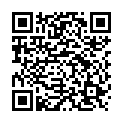|
|
|
| Module code: AGW23.5 |
|
|
3V+3S (6 hours per week, accumulated) |
|
6 |
| Semester: 1 |
| Duration: 2 semester |
| Mandatory course: yes |
Language of instruction:
German |
Assessment:
Examination achievement
[updated 30.10.2023]
|
AGW23.5 (P311-0271) Applied Health Sciences, Bachelor, ASPO 01.10.2023
, semester 1, mandatory course
|
90 class hours (= 67.5 clock hours) over a 15-week period.
The total student study time is 180 hours (equivalent to 6 ECTS credits).
There are therefore 112.5 hours available for class preparation and follow-up work and exam preparation.
|
Recommended prerequisites (modules):
None.
|
Recommended as prerequisite for:
AGW23.11 Health and Environment
AGW23.13
AGW23.14 Care Management and Evidence-Based Practice
[updated 04.12.2025]
|
Module coordinator:
Prof. Dr. Vasiliki Kolovou |
Lecturer:
Prof. Dr. Christine Dörge
Prof. Dr. Vasiliki Kolovou
[updated 09.02.2026]
|
Learning outcomes:
Module 23.5.1: Principles of health science
Learning outcomes:
After successfully completing this module, After successfully completing this module, students will:
be able to name the subject matter, issues and leading disciplines in public health.
be able to discuss the goals, tasks and field of action in public health.
be able to trace the historical development of the health sciences/public health.
be able to describe new and future challenges of health sciences/public health.
be able to name and characterize the determinants of health and disease.
be able to describe selected theoretical models of health and disease.
be able to differentiate between subjective and scientific health and disease theories.
be familiar with the problems of demarcation between health and illness.
be familiar with and distinguish between existing classification systems for diseases, functional ability, disability and health.
have a basic understanding of the background, tasks and objectives of health reporting.
be able to apply health science issues to various subject-specific tasks and fields of action.
be looking for solutions to health challenges.
be able to justify the principles of health science action in relation to the resp. subject matter.
be able to delineate individual- and population-based strands of reasoning.
be able to consider different perspectives and deal with them constructively by practicing a shift in perspective in both large and small groups.
have develop a professional self-understanding of public health/health sciences as an interdisciplinary field of work and research with the goal of maintaining the health of the population.
have gained an impression of the breadth and scope of health science topics.
be able to reflect on their own attitude towards health and illness and be open to change their ideas about this if necessary.
recognize health as an important individual and societal resource.
orient their professional actions on target groups and science.
Module 23.5.2: Interventions and Transfer
Learning outcomes:
After successfully completing this module, students will:
be able to identify the specific health needs of diverse groups.
be able to explain the public health action cycle as a method for theoretical analysis, as well as for planning, implementation and evaluation of health interventions.
be able to recognize the challenges, opportunities and limitations of health science activities in selected fields of practice.
be familiar with the tasks and procedures of intervention and transfer research.
be able to trace the reason for, planning and implementation of health interventions on the basis of selected examples.
be able to critically examine the dialogue between science and practice.
be able to apply selected examples to illustrate approaches and procedures for science-practice transfer.
be able to use findings from intervention and transfer research in the development, piloting, implementation, and evaluation of multifactorial interventions.
be able to actively participate in the health science discourse with experts from science, practice and research.
have acquired an understanding of the complexity and diversity of health science fields of action in theory and practice.
be aware of the interdependencies between science, practice and research.
[updated 30.10.2023]
|
Module content:
Module 23.5.1: Principles of Health Science
Subject matter, issues and leading disciplines in public health
Goals, tasks and fields of action in public health
Historical development of and new challenges to public health
Central public health institutions (WHO, RKI, public health service. BZgA)
National and global public health strategies
Health determinants, views on health and disease
Theoretical health and disease models (biomedical model, risk factor model, biopsychosocial model, salutogenesis)
Subjective health theories / on the relevance of the lay perspective to health science
The burden of disease concept
Classification systems for diseases, disability and health (ICD, DSM, ICF)
Introduction: Health Monitoring and Reporting
Module 23.5.2: Interventions and Transfer
Public health action cycle
Science-practice dialogue
Introduction: Interventions and Transfer
Implementation of individual public health strategies at the community, national, and/or international level (e.g., immunizations, physical activity, nutrition).
Health protection (subject, areas, measures and players)
Examples of local and regional health work
Field trips/visits to selected congresses, institutions and players in health science fields of action (e.g. "Poverty and Health" PuGiS, ÖGD)
[updated 30.10.2023]
|
Teaching methods/Media:
Blended learning
[updated 30.10.2023]
|
Recommended or required reading:
Will be announced at the beginning of the module.
[updated 30.10.2023]
|

